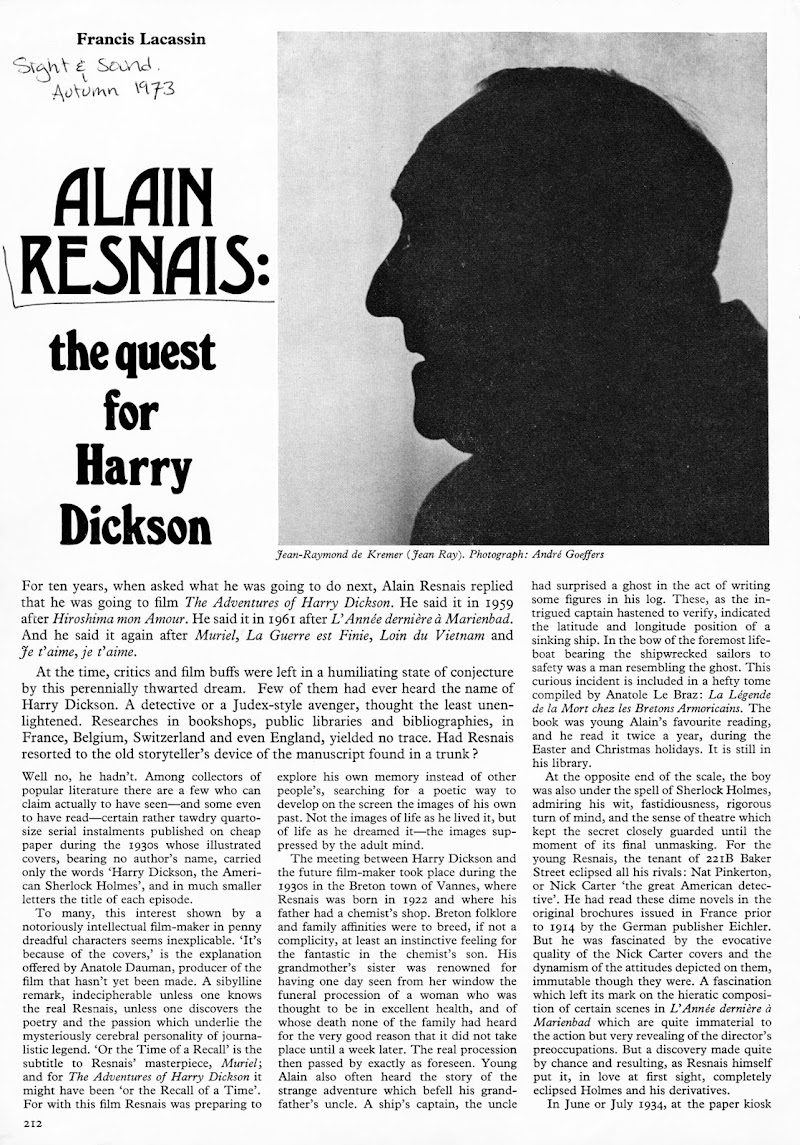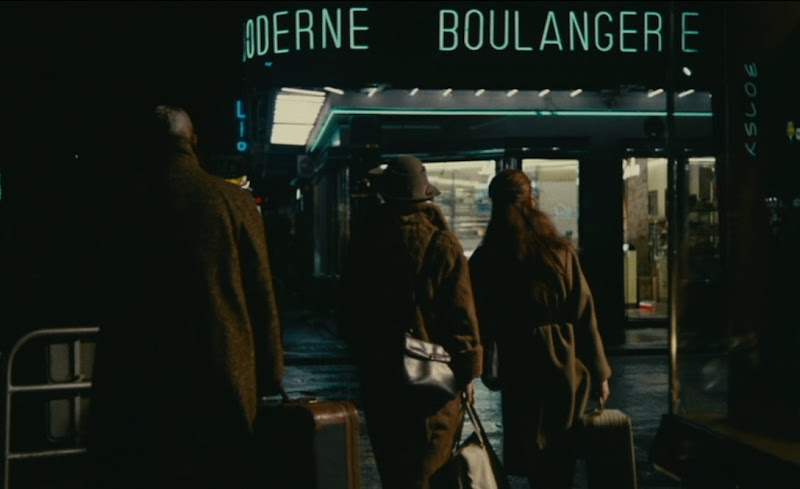When I was very young, I saw Riot in Cell Block 11, and I felt it was a remarkable film in terms of directing style. And also the actors were terrific. Then I saw Baby Face Nelson and I noticed that the screenwriter was Daniel Mainwaring, who had written novels and some early scripts under the name of Geoffrey Homes, and who I thought was an excellent screenwriter who wasn’t as well known as he should be. Eventually, I became very friendly with him, which led to my becoming very friendly with Don Siegel. I was discovering cinema. I was discovering film noir. I was discovering genre films. And what I liked in all of that was the physicality of the direction. I started to develop the conviction that cinema is not supposed to be intellectual — of course, it’s supposed to be intelligent, which is something else — and that it must be physical. If you think of Riot in Cell Block 11, you can imagine exactly what I was feeling — the physicality of the action, the leanness of the action. The mood is very dark, but at the same time it isn’t false. It’s a mood that comes from the subject matter, rather than being forced on top of it. Don was extremely good at studying groups of characters. For example, in Riot in Cell Block 11, there is a group of people in jail, and also the wardens. In Hell is for Heroes, there is a group of soldiers. In The Beguiled, it’s a group of women. And he places himself as an observer, almost a kind of entomologist.
domingo, 23 de novembro de 2014
segunda-feira, 20 de outubro de 2014
sábado, 18 de outubro de 2014
sexta-feira, 4 de julho de 2014
"To exorcise horror, we use many means, from whisky to tv"
A genre I'm well versed in is the so-called "horror film", although I prefer the French term film d'épouvant. I explained quite a few times what's my definition of horror. It's got nothing to do with monsters or things like that. I think that's a cheap way to scare people, worthy of carnivals... The "real" horror is hidden inside us since our birth. It's an atavic terror which dates back to cavemen, when our ancestors, the link between monkey and the first humanoids, hid in the deep of their badly lit caves, while outside, in the dark of those endless nights, tremendous apocalyptic storms broke out, and frightening roarings could be heard. And those helpless creatures couldn't do anything but hold each other in fear. The first terror is that of the dark. That's the real horror: that of something you can't see, of a noise that makes you shiver. In all of my films there are doors that open in the dark with no sound, creakings and rustling noises, a branch tapping against a window like the hand of a ghost. Ghosts. The beyond. A riddle that many people pretend to ignore. Spirits, or revenants as the French call them... those who come back. Many people, because of their ignorance, just refuse to talk about this. But I believe they are part of our reality. Ghosts frighten us, and when they are not "real" ghosts the effect is even more disquieting. Anyway, what they stimulate is our fear of the unknown, of the dark. To us, darkness means death. When a storm breaks out, the effect is complete. And the ones jumping on their seat just don't know that, for a brief moment, they look exactly like their ancestors in the caves. To exorcise horror, we use many means, from whisky to tv. They make us sleep. But even sleep isn't safe. Because our unconscious fills our dreams with nightmares... It's the Devil that plagues our nights, and it's he who rules our actions. He makes us envious, greedy and lustful, and leads us to sin, in its most horrible forms: from incest to matricide. That's the other recurring point in my films: man as an evil, devilish entity. Men who hide their real self under a mask of respectability, but are indeed capable of the most horrendous crimes. I've always been fascinated by magic: as a child, instead of Little Red Riding Hood, I used to read Eliphas Levi. I was fascinated by vampires. I think they really do exist, and are next to us, even though they don't have fangs and may die of a heart attack. To be a vampire means to live with someone who is much younger, sucking their strength, their ideas, their feelings. If you live with old people, you start thinking about death... to make audiences accept the notion of a modern-day vampire I had to show an old woman draining a young girl's blood. But, believe me, the world is full of vampires that are sucking the best off of you, even though no one's aware of it. Riccardo Freda, "Mario Bava - Master of Horror", Luigi Cozzi, Profondo Rosso, maio 2012
quinta-feira, 19 de junho de 2014
terça-feira, 17 de junho de 2014
Predicated on the development of a narrative convention both strict and elastic enough to accommodate a tension between dramatic probability and fantasy, between the continuity of suspense and the discontinuity of structure - between discourse and poetry, in short - Feuillade's work relates more to the future of film than to its past. Which is to say, as Robbe-Grillet has said, that "Imagination, when really alive, is always of the present." Annette Michelson, Film and the Radical Aspiration, Film Culture, n° 42, outono de 1966
terça-feira, 10 de junho de 2014
sábado, 7 de junho de 2014
quinta-feira, 29 de maio de 2014
quarta-feira, 14 de maio de 2014
sexta-feira, 2 de maio de 2014
Os melhores filmes de 1995, por Jean-Claude Guiguet: 1) Fuga para Odessa (James Gray) 2) Va mourire (Nicolas Boukhrief) 3) As Pontes de Madison (Clint Eastwood) 4) Paris no Verão (Jacques Rivette) 5) Li per li (Pierre Léon) 6) Memórias (Terence Davies) 7) Jusqu'au bout de la nuit (Gérard Blain) 8) Du Pappa (René Bjerke) 9) O Convento (Manoel de Oliveira) 10) Les rendez-vous de Paris (Eric Rohmer)




























%5B(139642)04-25-19%5D.JPG)
%5B(139710)04-25-54%5D.JPG)
%5B(139827)04-26-13%5D.JPG)
%5B(139906)04-27-43%5D.JPG)













































